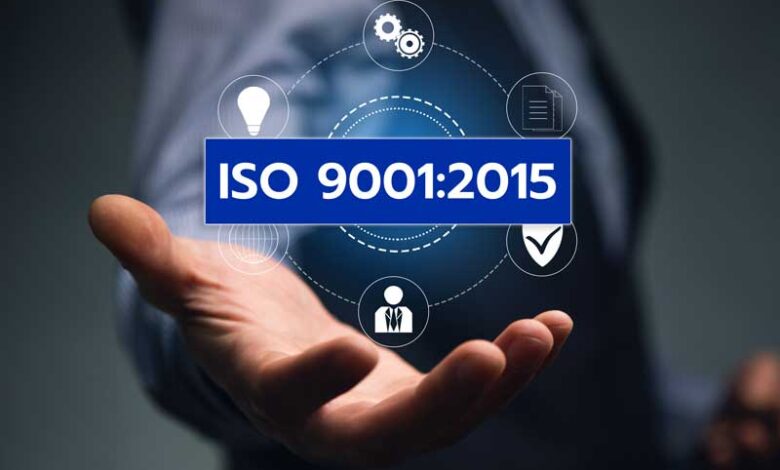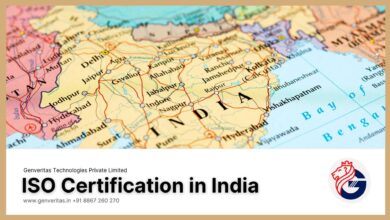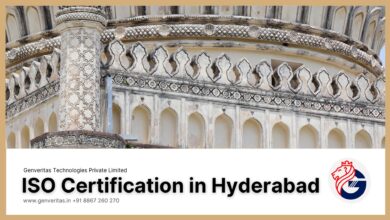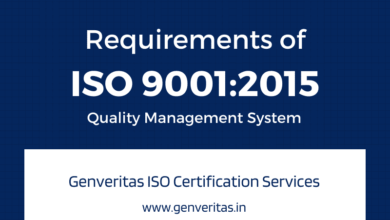ISO 9001:2015 Quality Management System (QMS) Certification

ISO 9001:2015 is an international standard that sets the criteria for a quality management system (QMS). This certification demonstrates an organization’s ability to consistently provide products and services that meet customer requirements and comply with applicable regulations. Here are some key points about ISO 9001:2015 certification:
- Quality Management System: ISO 9001 requires organizations to establish and maintain a quality management system. This system should include documented procedures, processes, and policies for managing quality and ensuring customer satisfaction.
- Customer Focus: ISO 9001 emphasizes customer focus and satisfaction. Organizations must understand and meet customer requirements, address customer feedback, and continuously improve customer satisfaction.
- Process Approach: ISO 9001 promotes a process-based approach to quality management. Organizations are required to identify and manage key processes, determine their interactions, and monitor their performance to achieve desired outcomes.
- Continuous Improvement: ISO 9001 emphasizes the importance of continuous improvement. Organizations are expected to regularly assess their processes, identify opportunities for improvement, and implement corrective actions to enhance efficiency and effectiveness.
- Risk-Based Thinking: ISO 9001:2015 introduced a stronger emphasis on risk-based thinking. Organizations are required to identify and assess risks and opportunities that may affect the QMS and take appropriate actions to address them.
- Leadership and Management Commitment: ISO 9001 places a strong emphasis on leadership and top management commitment to quality. Leaders are expected to demonstrate their involvement in establishing quality objectives, promoting the QMS, and ensuring resources are available for its implementation.
- Documentation: ISO 9001:2015 promotes a more flexible approach to documentation. While specific requirements for documented procedures have been reduced, organizations are still required to maintain documented information to support the effective operation of the QMS.
- Internal Audits and Management Reviews: ISO 9001 requires organizations to conduct internal audits to assess the effectiveness of their quality management system. Regular management reviews are also necessary to evaluate the QMS’s performance, identify areas for improvement, and ensure its continued suitability and effectiveness.
- Certification Process: To obtain ISO 9001:2015 certification, an organization typically goes through several stages. These include gap analysis, documentation development, implementation of the QMS, internal audits, and a final certification audit performed by an accredited certification body.
ISO 9001:2015 certification is recognized globally and can provide numerous benefits to organizations, such as enhanced customer satisfaction, improved operational efficiency, increased credibility, and access to new markets. It helps organizations establish a robust quality management system that focuses on continuous improvement and customer satisfaction.
Outlining the key elements of ISO 9001:2015:
| Element | Description |
|---|---|
| Scope | Defines the boundaries and applicability of the quality management system (QMS). |
| Normative References | Lists the relevant international standards referenced in ISO 9001:2015. |
| Terms and Definitions | Provides definitions of key terms used in the standard. |
| Context of the Organization | Requires organizations to identify internal and external factors that may affect the QMS, and understand the needs and expectations of interested parties. |
| Leadership | Emphasizes the involvement of top management in establishing and maintaining the QMS, and their responsibility for quality objectives, policies, and the overall effectiveness of the system. |
| Planning | Focuses on the organization’s commitment to addressing risks and opportunities, setting quality objectives, and planning for changes in the QMS. |
| Support | Outlines the resources, competence, awareness, communication, and documented information required to support the operation of the QMS. |
| Operation | Covers the implementation of processes needed to meet customer requirements, control operational activities, and ensure conformity of products and services. |
| Performance Evaluation | Involves monitoring, measurement, analysis, and evaluation of the QMS, including customer satisfaction, internal audits, management reviews, and nonconformity handling. |
| Improvement | Requires organizations to take corrective actions to address nonconformities and continually improve the effectiveness of the QMS. |
| Annex A: (Informative) | Provides guidance on the application of ISO 9001:2015 and additional information on quality management principles. |
| Annex B: (Informative) | Offers a comparison between ISO 9001:2015 and the previous version, ISO 9001:2008, highlighting the changes and their impact. |
| Bibliography | Lists informative references to relevant publications. |
Note: This table provides a general overview of the main elements of ISO 9001:2015. The standard itself contains more detailed requirements and guidelines for each element.
FAQs about ISO 9001:2015:
- What is ISO 9001:2015? ISO 9001:2015 is an international standard that sets the criteria for a quality management system (QMS). It provides a framework for organizations to establish processes, monitor performance, and continuously improve their ability to deliver products and services that meet customer requirements.
- Why should my organization implement ISO 9001:2015? Implementing ISO 9001:2015 can bring numerous benefits to your organization. It helps improve customer satisfaction, enhance operational efficiency, increase credibility and trust, open doors to new markets, and drive continuous improvement throughout the organization.
- How can ISO 9001:2015 certification benefit my organization? ISO 9001:2015 certification demonstrates your organization’s commitment to quality and customer satisfaction. It can enhance your reputation, attract new customers, increase market competitiveness, and improve internal processes and efficiency.
- Is ISO 9001:2015 applicable to any industry or organization size? Yes, ISO 9001:2015 is applicable to organizations of all sizes and industries. Whether you’re a manufacturing company, service provider, nonprofit organization, or government agency, you can implement ISO 9001:2015 to improve your operations and customer satisfaction.
- How long does it take to implement ISO 9001:2015? The time required to implement ISO 9001:2015 varies depending on the organization’s size, complexity, and existing processes. It can take several months to a year or more, depending on factors such as resource availability, commitment from top management, and the organization’s readiness for change.
- Do we need to hire a consultant to implement ISO 9001:2015? Hiring a consultant is not mandatory but can be beneficial, especially for organizations with limited knowledge or resources. A consultant can provide expertise, guidance, and support throughout the implementation process, ensuring a smoother and more effective transition to ISO 9001:2015.
- How often is ISO 9001:2015 certification audited? ISO 9001:2015 certification is typically audited on an annual basis. Certification bodies conduct surveillance audits to ensure ongoing compliance with the standard and verify the effectiveness of the organization’s quality management system.
- Can ISO 9001:2015 help us improve our customer relationships? Absolutely. ISO 9001:2015 places a strong emphasis on customer focus and satisfaction. By implementing the standard, you can better understand and meet customer requirements, enhance communication, and continuously improve your products, services, and overall customer experience.
- How does ISO 9001:2015 promote continuous improvement? ISO 9001:2015 requires organizations to establish processes for monitoring and measuring performance, conducting internal audits, and taking corrective actions. By following these practices, organizations can identify areas for improvement, implement changes, and continually enhance their quality management system.
- Is ISO 9001:2015 a one-time implementation or an ongoing process? ISO 9001:2015 is an ongoing process. It requires organizations to continuously monitor and improve their quality management system to ensure its effectiveness and alignment with changing customer needs and expectations.
Remember, while these FAQs provide general information, it’s always recommended to consult with a qualified professional or certification body for specific guidance related to your organization’s needs and circumstances.





